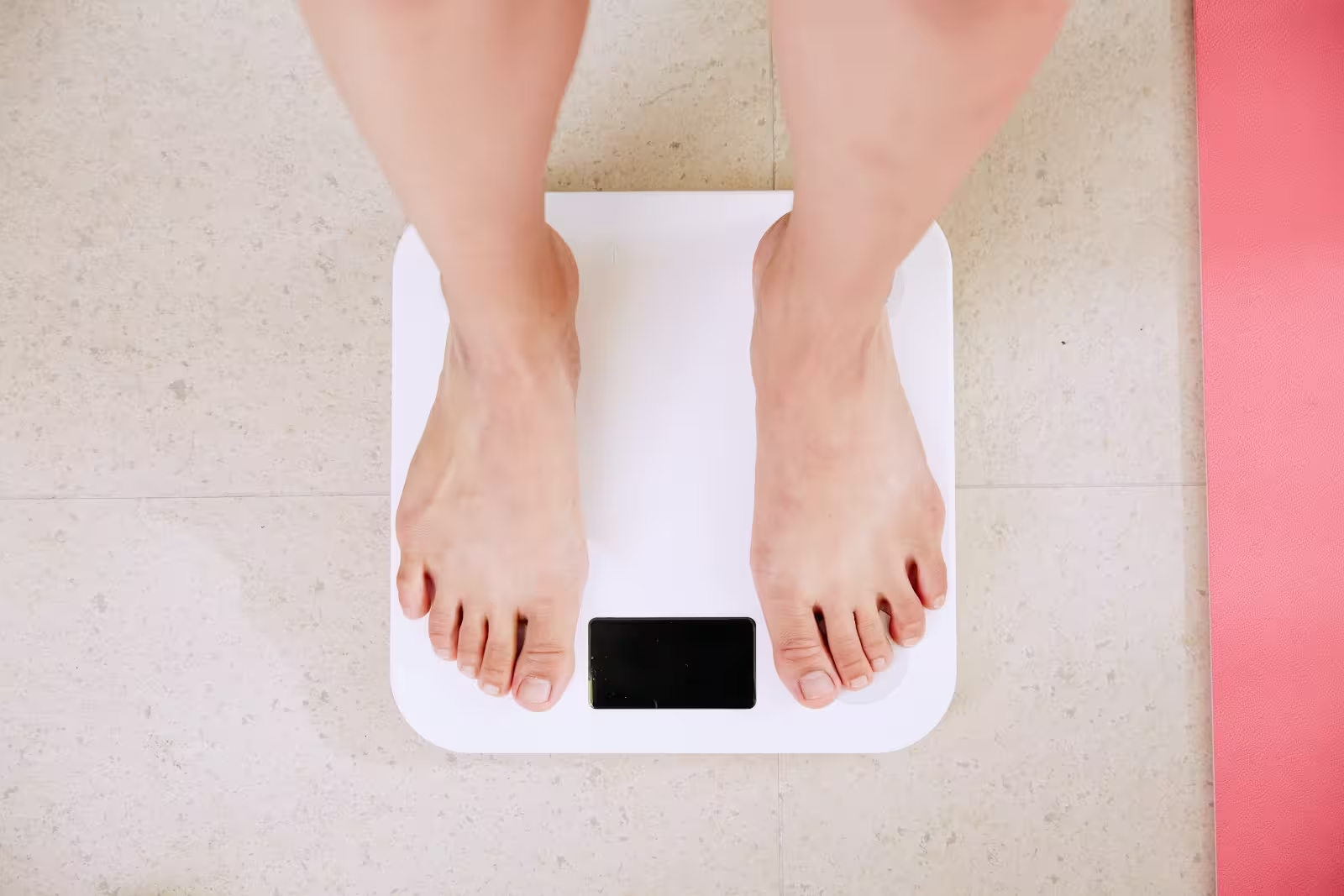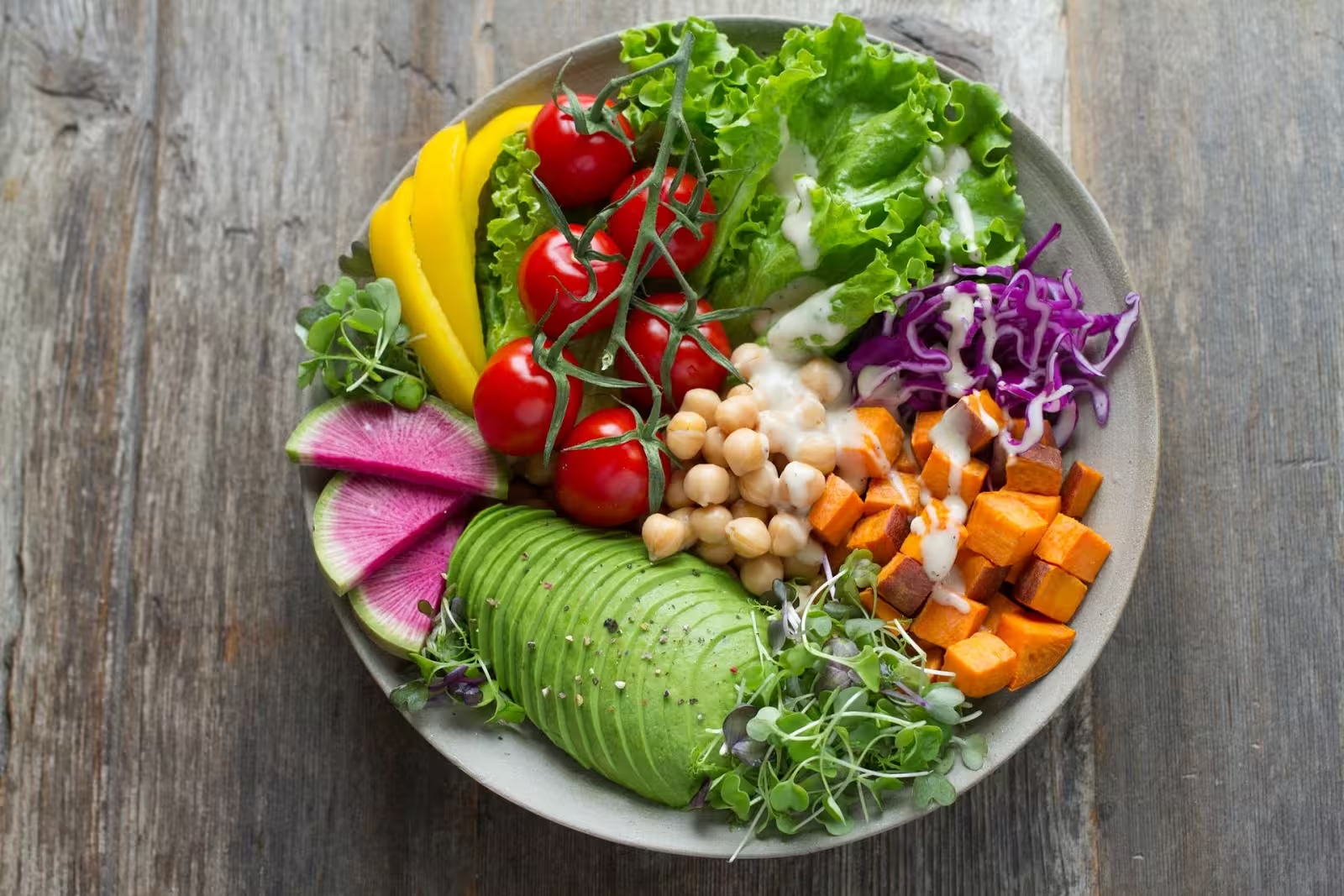What are whole foods?
Before we get started with our list, let's explain what we mean by "whole foods". Whole foods are unrefined, unprocessed plant-based foods such as fresh fruits and vegetables, tubers, grains, legumes, beans, nuts and seeds. All of these, in the right proportions, can contribute to a healthy plant-based diet.

If you are looking to switch some plant-based foods into your diet, please note that processed meat replacements are not the healthiest choices. This is not to say you shouldn't eat them. It's just best to enjoy them in moderation and understand that just because they are plant-based, doesn't mean they're healthy.
Benefits of a whole food, plant-based diet
Now we know what whole foods are, we can delve into why including more of them can benefit your health. For a start, plant-based foods are naturally high in antioxidants, vitamins, minerals, and fibre. So including more of them in your diet is automatically going to give you a nutritional boost! But what can they do with some of the more serious health issues a lot of us suffer?
Can a plant-based diet help me lose weight?
A plant-based diet can definitely help you lose weight. But, there's a catch (isn't there always?). Eating a plant-based diet will only help with weight loss as part of a healthy all-round lifestyle. In order to lose weight (or lose fat and build muscle, which is a healthier approach), you need to work on a few areas.
Weight loss itself relies on maintaining a calorie deficit, which means burning more calories than you're consuming each day. So you know what's coming next - exercise! In order to lose weight in a healthy way, you need to eat foods that are high in fibre (which a lot of plant-based foods are), lower in fat (again, whole foods are generally great for this) and get moving! This is especially true if you want to build muscle rather than just losing fat. Regular cardio and strength training alongside your plant-based diet will create a good, solid routine which is healthy all round.
But don't fret! Even a short, brisk walk each day can help. So you don't need to pay for a fancy gym membership or buy an exercise bike. Exercise is addictive, so you'll probably find that once you get into the habit of regular exercise, you'll want to do more. If you have children, don't think you need to work a separate exercise regime around them - just get them involved! Have a look at our list of 50 family outdoor activities, for some inspiration.

Will a plant-based diet reduce my risk of heart disease?
Cardiovascular disease is still the world's biggest cause of death. So naturally, people are looking at the best ways to prevent CVD-related mortalities.
The American College of Cardiology recently conducted a study investigating the relationship between diet and risk of cardiovascular disease. The study concluded that a plant-based diet can be effective in reducing your risk of heart failure. Remember though, if you're still eating lots of processed, sugary or fried foods, the benefits will be a lot less.
Do the health benefits of a plant-based diet include diabetes?
Whilst a combination of factors contribute to developing type 2 diabetes, it's not solely due to animal products. It's possible to have a very unhealthy vegan diet, full of processed, high fat and high sugar foods. Just as it's possible with an omnivorous diet. However, the health benefits of a whole food plant-based diet include the fact that a lot of these foods are naturally low in saturated fat. This, in turn, can help maintain a healthy weight. As excess weight is one of the major contributing factors to type 2 diabetes, it makes sense that incorporating more of them into your diet can lower your risk.
According to Diabetes UK: "Plant-based foods, in particular vegetables, fruits, nuts, seeds and pulses, have been shown to help in the treatment of many chronic diseases and are often associated with lower levels of type 2 diabetes".
It's worth noting here that Type 1 diabetes is usually caused by the body's own immune function mistakenly destroying the cells in the pancreas that produce insulin. Type 1 diabetes cannot be prevented by changing your diet. So please seek the advice of a medical professional before adopting any new dietary habits if you have diabetes.
Click this link to learn about the pros and cons of health insurance for diabetics.
Does a plant-based diet prevent cancer?
It's pretty well-known that some foods, drinks and lifestyles can increase your risk of developing some types of cancer. These include smoking causing lung cancer, red and processed meats adding to bowel cancer risk, and sunburn leading to skin cancer. But do the health benefits of a plant-based diet extend to preventing cancer?
This article, from Viva Health, gives examples of several studies investigating the reduction in cancer risk from eating more plant-based foods. One of these studies, which was conducted over 15 years, followed 60,000 British men and women. Of these, over 18,000 were vegetarians and 2,246 vegan. It found that the incidence of cancer overall was 11 per cent lower in vegetarians and 19 per cent lower in vegans, compared with the meat-eating group.

Will eating more plant foods lower my cholesterol?
High cholesterol is a huge contributing factor to heart attacks. The NHS and other medical professionals regularly advise people with high cholesterol to reduce their intake of high fat animal products and replace them with plant foods. According to One Green Planet, these 10 foods can be particularly beneficial for lowering cholesterol levels and reducing heart attack risk.
Any other health benefits of a plant-based diet?
There are many other benefits of switching to a plant-based diet. These include potentially reducing joint pain and inflammation associated with arthritis. Eating a whole food plant-based diet can also help support your immune system, improve gut health (due to higher fibre levels) and has even been linked with reducing the risk of dementia.
Will eating a plant-based diet help me live longer?
The number of years we live depends on a huge variety of factors. So it's difficult to say for sure what exactly will help each of us live the longest life possible. What we can say, though, is that if plant-based diets can help reduce your risk of all the diseases listed above, then eating predominantly plant-based foods must at least contribute to living a healthier lifestyle all round. Hopefully, in turn, this will lead to a longer life!
Is it safe for children to eat a plant-based diet?
Absolutely! It may seem extreme, but actually, children thrive on a vegan diet. Plant-based foods can provide all the nutrients, minerals, vitamins and fats children need. This, combined with the fact that a lot of animal products are known carcinogens, is a good reason to at least reduce your child's intake of processed and red meats. This guide from The vegan Society gives a good overview of how to raise children on a plant-based diet. It's always worth talking to a doctor or paediatrician about your child before changing their diet.
About the author
Katie Skelton is the owner and director of Little Green Duck, a copy and content writing agency. She specialises in working with plant-based, ethical and sustainability-focused businesses and has a passion for vegan food. She currently lives in the New Forest in Hampshire, having recently returned from an around-the-world trip with her husband and two children.


